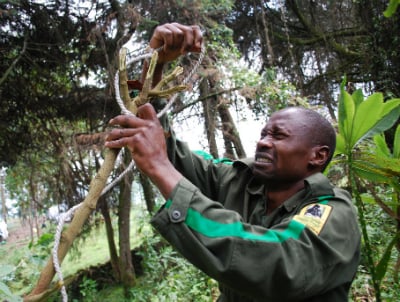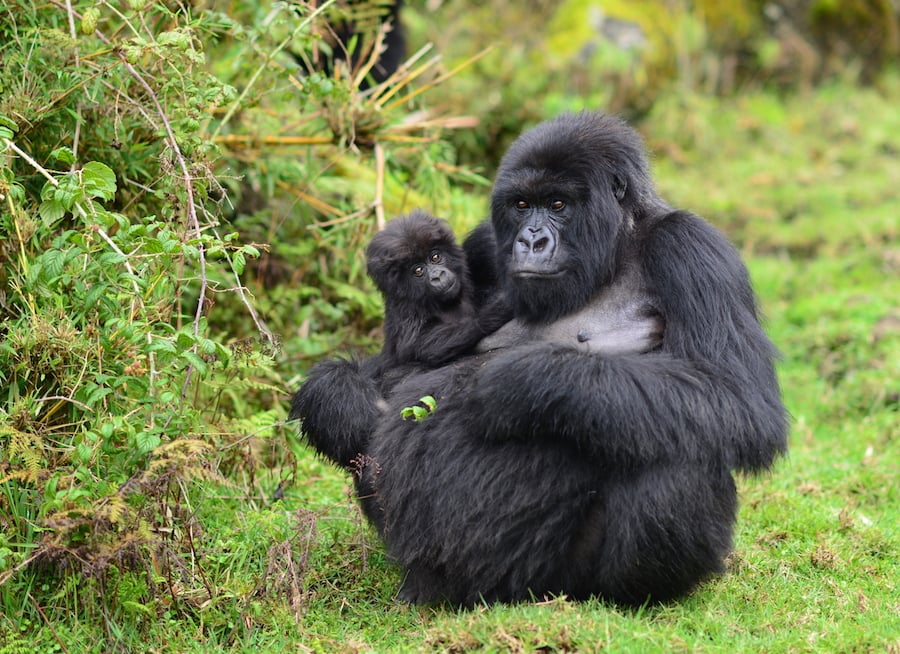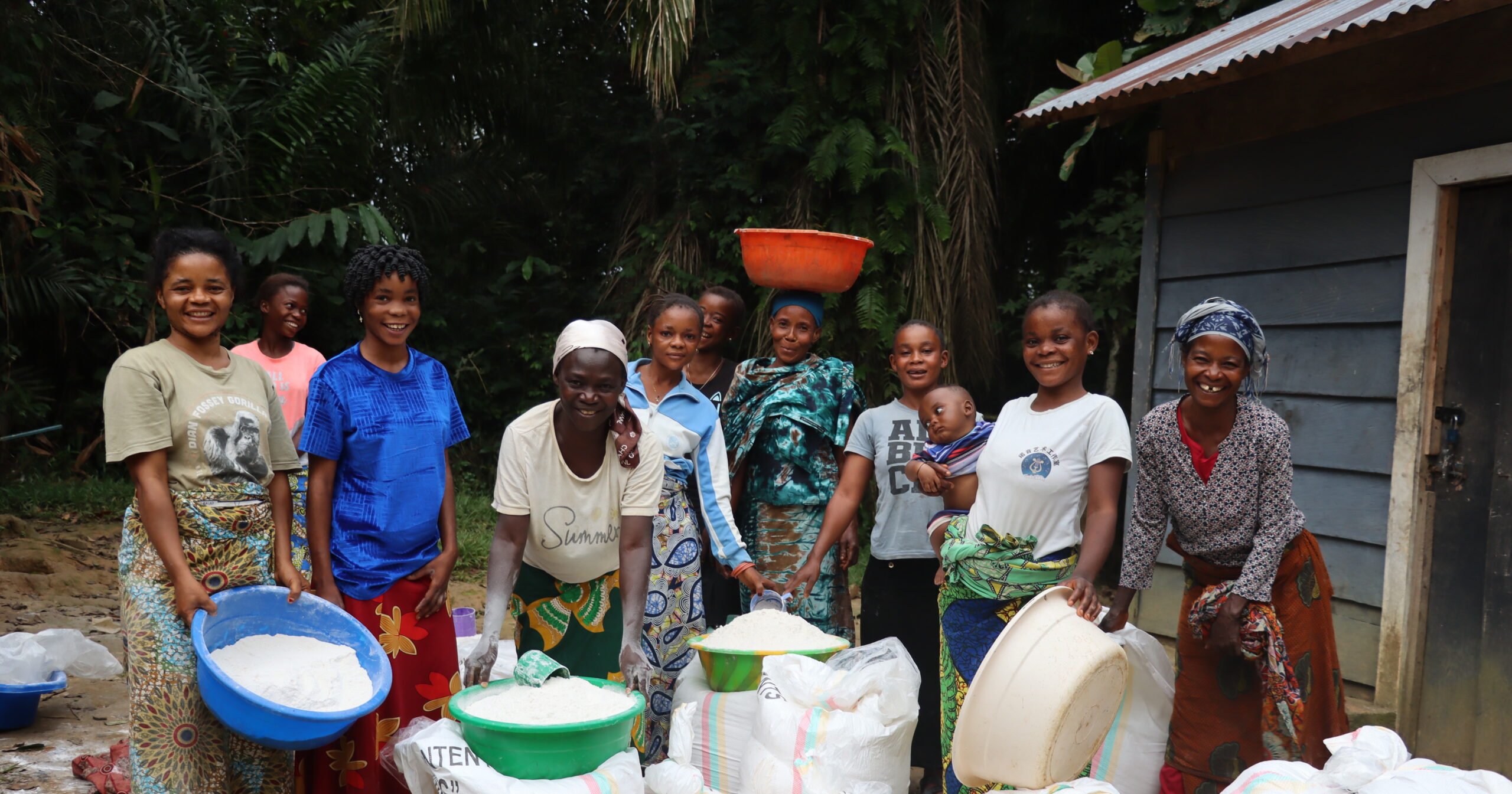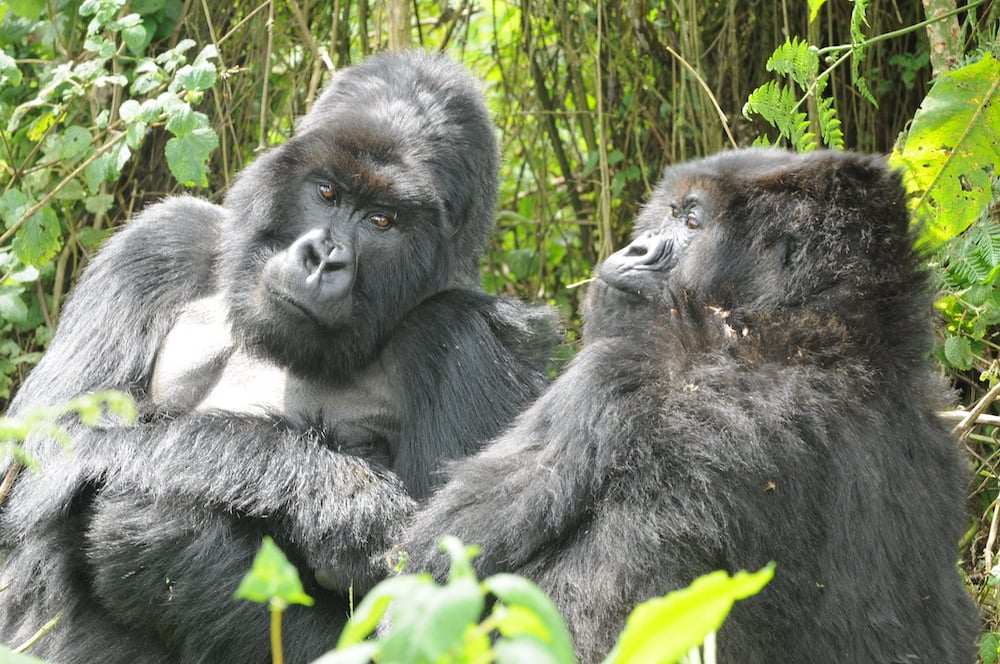January 18, 2012
January 2012 Proves a Busy Time for Anti-Poaching Efforts
 The holiday season and beginning weeks of the new year is notoriously a busy time for anti-poaching efforts in the Virunga Massif region. And 2012 is shaping up to be no different. Through a combination of “routine” and “shock” patrols, the Fossey Fund’s Karisoke™ Research Center and the Rwanda Development Board’s anti-poaching rangers have already discovered and destroyed an astounding 195 snares in Volcanoes National Park this month. The confiscated snares were distributed throughout Sector II (between Mount Visoke and Mount Sabyinyo), Sector III (Mount Visoke to Mount Karisimbi) and Sector IV (Mount Karisimbi), with a concentration in Sector II and III – where the Karisoke-monitored gorilla groups range.
The holiday season and beginning weeks of the new year is notoriously a busy time for anti-poaching efforts in the Virunga Massif region. And 2012 is shaping up to be no different. Through a combination of “routine” and “shock” patrols, the Fossey Fund’s Karisoke™ Research Center and the Rwanda Development Board’s anti-poaching rangers have already discovered and destroyed an astounding 195 snares in Volcanoes National Park this month. The confiscated snares were distributed throughout Sector II (between Mount Visoke and Mount Sabyinyo), Sector III (Mount Visoke to Mount Karisimbi) and Sector IV (Mount Karisimbi), with a concentration in Sector II and III – where the Karisoke-monitored gorilla groups range.
Field staff reported that the Sabyinyo and Pablo groups were dangerously close to the snares at the time of confiscation. In fact, Pablo’s group’s night nests were dispersed throughout the area laden with traps, with some nests just mere meters away from a snare. On Wednesday, Jan. 11, 12 snares were found and destroyed by Karisoke’s Pablo trackers, two of which had already been destroyed by the gorillas themselves when the trackers arrived. Although the field staff can’t be sure which of Pablo’s group’s 45 gorillas is responsible for dismantling the snares, 33-year-old dominant silverback Cantsbee has been observed destroying snares before, as was the group’s previous leader Pablo and silverback Shinda.
Snare removal: Gorillas helping out
“The behavior is typically combined with a display” says Karisoke primatologist Winnie Eckardt, Ph.D. “In a moment of agitation, an adult gorilla will grab the arched bamboo section of the snare and run with it, pulling it out of the ground as he goes.” But do they realize what they are doing? Are they intentionally destroying these traps? According to Eckardt, “those older, more experienced gorillas have seen individuals trapped in snares. In my opinion, there’s no doubt that they know exactly what they are doing.”
To the untrained eye, the snare – composed of natural materials (typically wood and twine) – blends in seamlessly to the surrounding vegetation. Even with the gorillas’ intimate knowledge of their habitat, the trap can go unnoticed by the group. Oftentimes, it is an inexperienced youngster that falls victim. But the stress from the incident – and possible human intervention that follows – is felt by the entire group and can have lasting effects.
A worrying trend
It seems that the number of post-holiday-season snares being found and destroyed has been steadily growing throughout the previous years. Could this actually be a surge in poaching activity or simply a result of increased anti-poaching efforts by the Fossey Fund and the Rwanda Development Board?
Fortunately, none of the Karisoke-monitored mountain gorillas have fallen victim to a snare yet this year and we hope that remains the case. With the prospect of hiring an additional anti-poaching team in the near future, the Fossey Fund can ensure that the mountain gorillas are protected from falling victim to poachers in Volcanoes National Park.
UPDATE
Our anti-poaching patrol found 62 more snares in our sector the week after this report was filed. In particular, on January 18 they found 47 in the same spot on the eastern Karisimi slope. All these snares are alarming and they lead to the obvious conclusion to intensify our anti-poaching effort and the need for more staff to do that. In addition, it rises the issue of the importance of community programs and sensitization to bring the problem to the local level.
David Sindayigaya (head tracker of the anti-poaching team) will continue the routine patrols in sector 3 next week. We will ask the Rwanda Development Board for support to help us make up a larger patrol team.
To make a donation to contribute to additional anti-poaching rangers, or for more information about the Karisoke Research Center’s anti-poaching efforts, please go to https://gorillafund.org/programs/protecting-gorillas/anti-poaching
Submitted by Jessica Burbridge, Field Communications Officer and Veronica Vecellio, Gorilla Program Manager






